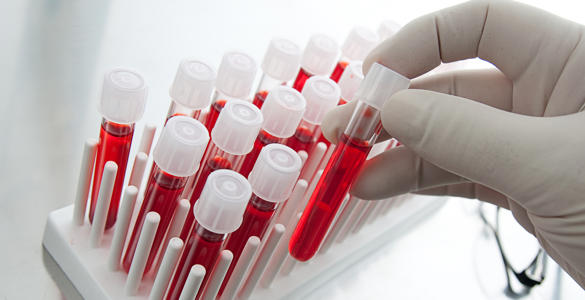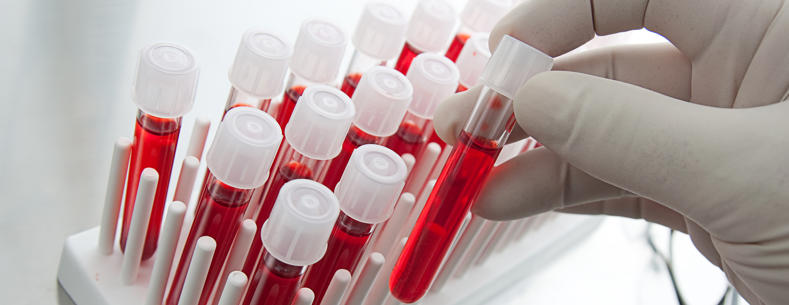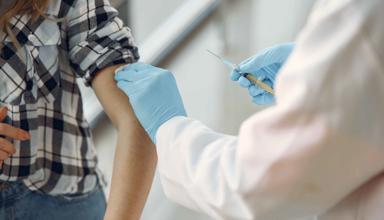The infection of people with hepatitis C and/or HIV, as a result of NHS treatment with contaminated blood, blood products or tissue in the UK has been described as the worst treatment disaster in the history of the NHS. It is widely known as the ‘infected blood scandal’.
The First Minister, speaking in 2018 when Cabinet Secretary for Health and Social Services, described it as “a tragedy that should never have happened and must never happen again”.
What caused the infected blood scandal?
During the 1970s and 1980s, thousands of patients in the UK contracted hepatitis C, HIV, or both, after being given contaminated blood products.
People with haemophilia and those with similar conditions, were given infected blood products as part of their treatment.
The Haemophilia Society website explains that people with bleeding disorders used factor concentrate as their treatment, which was produced by pooling human blood plasma from up to 40,000 donors and concentrating it to extract the required clotting factor. One contaminated sample could infect the entire batch.
Due to local shortages of factor concentrate, the UK imported supplies derived from paid-for blood donations in the United States. In some cases, these may have been sourced from groups at high risk of carrying hepatitis C/HIV.
Thousands more people were infected between 1970 and 1991 after receiving transfusions using contaminated blood during surgery, other medical treatments or after childbirth.
In the UK, universal screening for HIV was not introduced until October 1985 and not until September 1991 for hepatitis C.
How many people were infected?
The Infected Blood Inquiry report provides the following statistics for the number of people infected:
- Around 1,250 people in the UK with bleeding disorders were infected with HIV, which included an estimated 380 children. Almost all infected with HIV were also infected with hepatitis C and some with hepatitis B and hepatitis D. Three quarters of these 1,250 adults and children have died.
- Between 2,400 and 5,000 people with bleeding disorders who were not infected by HIV received blood products infected with one or more hepatitis viruses, and developed chronic hepatitis C.
- Between 80 and 100 people were infected with HIV and approximately 26,800 were infected with hepatitis C after a blood transfusion.
The Inquiry’s final report describes the scale of what happened as “horrifying” and that "the most accurate estimate is that more than 3,000 deaths are attributable to infected blood, blood products and tissue".
Comprehensive statistics relating specifically to Wales are not widely available. Haemophilia Wales state that in the 1970s and 1980s, 283 patients in Wales were infected with hepatitis C. Of those, 55 were also infected with HIV through factor concentrates made from imported pooled plasma; in Wales alone over 70 people with haemophilia have died.
What is the Infected Blood Inquiry?
In July 2017, former Prime Minister Theresa May announced a public inquiry for victims and families into the "appalling tragedy" of contaminated blood. This followed years of campaigning by those affected and also politicians, including the Senedd’s Cross Party Group on Haemophilia and infected blood.
The Infected Blood Inquiry, chaired by Sir Brian Langstaff, formally began its work in July 2018.
The Inquiry published its final report on 20 May and concludes that most infections could and should have been avoided and that mistakes were clearly made. There was a failure to make patient safety paramount in decision-making and actions.
Detailed information is given on all elements of what happened and why, along with the impact on those infected and affected and what lessons need to be learned.
Failures that led to the infections are listed in the report, including failures by clinicians and the health service. Sir Brian Langstaff says:
The picture that emerges overall from the findings in this Report is one in which people have been failed, not once but repeatedly, by their doctors, by the bodies (NHS and other) responsible for the safety of their treatment, and by their governments. [p13]
The report highlights a lack of openness, transparency and candour, shown by the NHS and government, "such that the truth has been hidden for decades". It also refers to the deliberate destruction of some documents and the loss of others.
The infected blood scandal pre-dates devolution. However, the report refers specifically to Wales in places and finds that Wales followed the lead of the UK Government’s Department for Health and Social Security on matters of health policy regarding blood and blood products. The report notes that “policy on infected blood was determined with a lack of curiosity as to whether the English position was actually justified”.
Recommendations
The report’s principal recommendation remains that “a compensation scheme should be set up now”. This follows a recommendation in an interim report published by the Inquiry in April 2023, which is discussed below.
The report recommends that a permanent memorial should be established in the UK and consideration given to memorials in each nation of the UK.
In relation to Wales, it is recommended that Health Education and Improvement Wales should take steps to ensure that the “lessons to be learned” which relate to clinical practice should be incorporated in every doctor’s training.
The report sets out a number of further recommendations relating to healthcare provision, many of which have implications for Wales.
Apologies
Following the Inquiry’s findings, the Welsh Government’s Cabinet Secretary for Health and Social Care issued an apology to all those who were infected and affected by the “terrible tragedy”. The Cabinet Secretary noted the Welsh Government remains committed to “working on a four-nations basis to respond to the inquiry’s recommendations, with a view to achieving the best possible outcomes for beneficiaries and their families in Wales”.
Prime Minister Rishi Sunak also issued an apology in relation to the failures relating to the infected blood scandal.
What support is available to those affected?
Infected Blood Support Schemes have been set up in each nation of the UK.
Established in October 2017, the Wales Infected Blood Support Scheme (WIBSS) provides financial support to people who have been infected with hepatitis C and/or HIV as a result of NHS treatment with blood, blood products or tissue in Wales. The eligibility criteria and payment rates are set out on the WIBBS website.
Individuals registered with WIBSS, their family members and bereaved family members can also access psychological assessment and treatment.
Has compensation been provided?
In addition to annual financial support from the government, those infected and affected by contaminated blood have been campaigning for compensation.
Following the recommendation of the Infected Blood Inquiry's first interim report (July 2022), an Infected Blood Interim Compensation Payment Scheme was established. This is a UK-wide scheme that provided interim compensation payments consisting of a one-off payment of £100,000 per eligible individual or case in October 2022.
The Inquiry’s second interim report (April 2023) called for a compensation scheme to be set up immediately and interim payments to groups including bereaved children and parents.
The UK Government decided to wait until the Inquiry’s full report was published before responding to these recommendations.
The UK Government announced in a statement on 21 May that it will pay comprehensive compensation to those who have been infected and affected as a result of the infected blood scandal and will make further interim payments ahead of the establishment of the full scheme. The interim payments will be delivered within 90 days.
Article by Rebekah James, Senedd Research, Welsh Parliament






